Who Is StorefrontBacktalk?
Retailers are one of the largest vertical markets when it comes to investing in technology to run their business. StorefrontBacktalkTM is focused on serving the information needs of the top IT and E-Commerce executives with the world’s largest retail chains.
-Jeff Waltzer, Security Administrator, Multi-billion-dollar retail chain
StorefrontBacktalk site and weekly newsletter have quickly become the industry fastest growing and most respected source of retail technology news and insights. Our stories are on-point, insightful and relevant to C-level business and technology buyers.
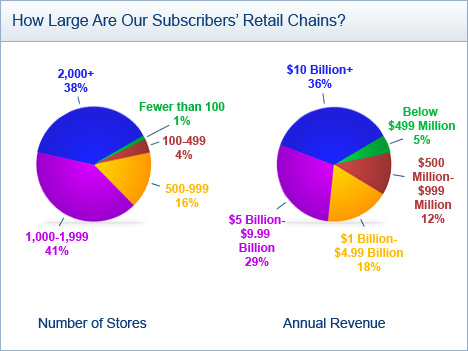
StorefrontBacktalk reaches 100 percent of the chains on the Stores Top 100 Retailers list. The weekly newsletter reaches more than 50,000 subscribers and StorefrontBacktalk.com delivers more than 20,000 unique visitors every month. And they come because of our reputation for breaking stories about the largest retailers, a reputation given us by some of the largest media players, who attributed those stories to us.
(See a partial list of those stories.)
But these subscribers and site visitors aren’t merely with the largest retail chains and consumer goods companies in the world. They are technology-savvy retail executives in IT, E-Commerce, Marketing and Operations roles. If those are the people you are having difficulty reaching, StorefrontBacktalk can help. (Note to PR people: Interested in pitching a story to StorefrontBacktalk? Here are some helpful tips on how to convince us you have a good StorefrontBacktalk story.)
-Larisa Hall, VP/Marketing, TheFind

StorefrontBacktalk offers its partners significant opportunities to expand their reach. Our sponsorship program incorporates multiple outlets, such as regular webcasts, podcasts, newsletters, panels and more, as well as special events.
StorefrontBacktalk has been quoted in a wide range of major media outlets, including The Guardian, Wired, Reuters, Computerworld, USA Today, CNN, MSNBC, CBS’s 60 Minutes, Dallas Morning Journal, Knight-Ridder/Tribune News Service, Fresno Bee, Colorado Springs Gazette, Miami Herald, Bergen Record, Columbus Dispatch, Consumerist and Consumer World. It’s also been cited in a laundry list of technology media. Among those are Dark Reading, CIO Magazine, PC World, eWeek, RISNews, BusinessWeek, CSP Daily News, NACS Online, CNET, BNET, Greensheet, SC Magazine, Appscout, Digital Transactions, Search Security and Contactless News.
We partnered with more than half a dozen of the industry’s leading website tracking firms over the holiday season, monitoring E-Commerce hiccups from Black Friday to Cyber Monday throuphpgh New Year’s Eve. To read more details on that radical Twitter Black Friday project, please click here.
-David M. Bruno, Director of Product Marketing, Escalate Retail
Moving forward, we have additional plans to consistently create more “buzz” that will further enhance StorefrontBacktalk.com’s reputation as the “must-see” website dedicated to keeping track of what’s happening every day in the multi-billion dollar online retailing industry.
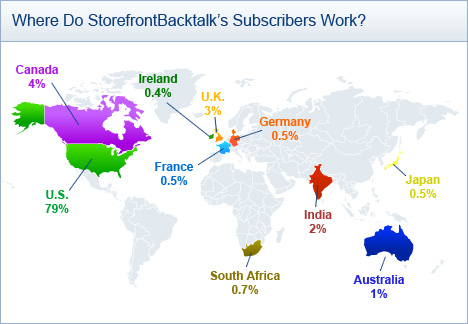
It’s a place where you’ll want to be seen. Contact us here to find out more about advertising, and linking your name with ours.
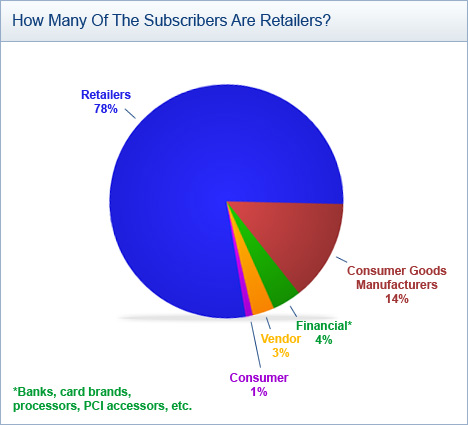
If you’re looking to reach the technology buying teams of retailers and e-commerce companies, StorefrontBacktalk will prove to be an invaluable addition to your marketing plan.
-Avivah Litan
Gartner
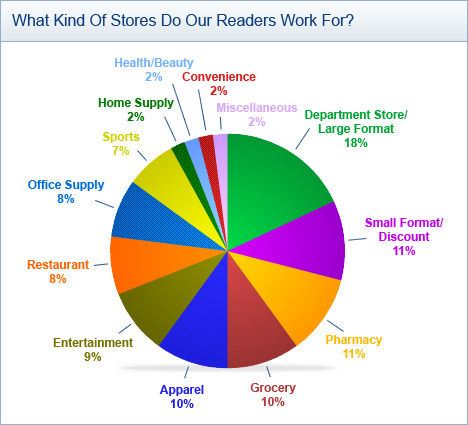
StorefrontBacktalk provides advertisers and sponsors with the right vehicle to build your brand and generate quality business leads. Opportunities include:
- StorefrontBacktalk Online Advertising
- StorefrontBacktalk Newsletter Sponsorship
- StorefrontBacktalk Custom Media
- StorefrontBacktalk Podcast Sponsorship
- WebcastBuffetTM
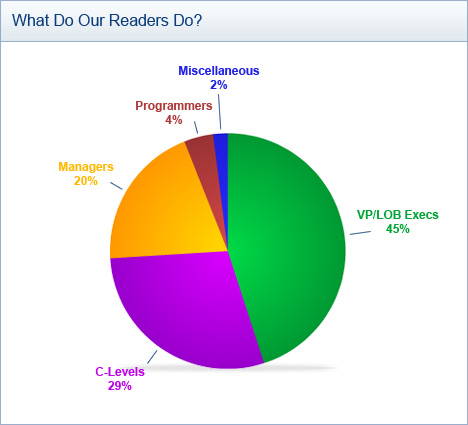

“About Men’s Warehouse change in leadership. “It’s the difference between having many customers who want to be in the stores and who enjoy getting clothes that they like and customers who find shopping for clothes one-quarter notch more pleasant than dental surgery,” notes Evan Schuman, editor of StorefrontBacktalk.com.”

“The Albertson’s supermarket chain is getting rid of self-checkout at all locations, and Kroger is experimenting with no-self-checkout stores as well, reports StorefrontBacktalk.”
“Kroger, the largest grocery chain in the U.S. (with some 2,500 outlets), is experimenting with removing all self-checkouts in at least one Texas store, reports StorefrontBacktalk, an industry publication.”

“Bill Bass, who used to run e-commerce operations for Sears and Lands End and now overseas the Charming Shoppes chain online initiatives, recently gave an interview with StorefrontBacktalk that describes perfectly the conundrum facing brands — or specifically retailers — that base a campaign around getting a Facebook Like.”
“And it has to make sure Target’s new website doesn’t crash, as it has several times since it rolled out in late August, including a five-hour malfunction in September when shoppers stormed online to buy Missoni clothes and housewares. ‘It’s a very cutting-edge site that wasn’t sufficiently tested and it can’t hold up to the strains of Target traffic,’ said Evan Schuman, who runs the retail technology blog StorefrontBackTalk.”

“StorefrontBacktalk notes that, during the company’s quarterly conference call, Johnson said that all JCPenney associates would be getting iPod Touches for point-of-sale operations.”

“Wal-Mart will allow the team from its tech arm, @WalmartLabs, to test innovations in four or five brick-and-mortar stores, StorefrontBacktalk reported. One idea is a concept called endless shelf, that connects an in-store shopper with her shopping history and lets her place her order from a computer at the front of the store. Workers would fill the order from store shelves and ship out-of-stock items directly to the customer.”

“The postmortems have been harsh, bashing (JCPenney CEO) Johnson for misunderstanding his customer base in axing in-store promotions and commissions for salespeople. ‘It was a terrible idea from the beginning,’ said Evan Schuman, a retail analyst who runs StorefrontBacktalk.com. ‘To have made sense, you would’ve had to believe that the shopper base was almost identical to Apple’s.’”
“And so you shrug at the odd little charge on your credit or debit card, maybe for an iTunes download you’re not sure you remember. ‘It’s a test transaction,’ warned Evan Schuman, editor for StorefrontBacktalk.com, a technology blog read by major retailers.”
“Walmart has confirmed that a software glitch caused nearly all of the chain’s self-checkout units for the past two weeks to display incorrect or confusing information, according to StorefrontBacktalk.com.”

“According to a StorefrontBacktalk report, Subway’s corporate IT and a credit card company discovered the data breach ‘almost simultaneously.’”

“PayPal users who shop at Home Depot can pay for purchases at participating Home Depot locations by simply entering their mobile phone number and a PIN at the payment terminal. No wallet, identification or mobile device itself need to be present, which means that anyone who has access to the user’s phone number plus PIN can access the registered user’s account. This has potential security nightmare written all over it! StorefrontBacktalk has more details on this new way to pay and the risks associated with it.”

“In (eBay CEO John) Donahoe’s case, he bragged during last week’s conference call that Macy’s had turned to eBay to reach Australian consumers. But according to StorefrontBacktalk, Macys.com was already selling to Australian customers using third-party vendor FiftyOne, and finding, in fact. The retail blog also found that Macy’s eBay Australia store currently has no products.”
“A QR code approach that will display different information—and initiate different actions—based on the purchase history of the person scanning it is being evaluated by Home Depot, Target and Macy’s, according to StorefrontBacktalk.”

“Last weekend was a great time to fill up the car, unless you used a Shell station to do it. According to StorefrontBacktalk, a confidential memo from payment processor First Data says that 401,120 consumers were double-billed to the tune of $12,135,608.19 January 29 after a system outage.”

“The reasons for American Eagle Outfitters’ four-day outage (and subsequent four more days of technical aftershocks) related to backup and disaster-recovery technologies and processes that failed, according to several articles on retail tech site StorefrontBacktalk.com.”

“One of the companies has been confirmed as JCPenney, by the blog StorefrontBacktalk, which reported last year that the company was believed to be among the targets. Last August, StorefrontBacktalk was the first to report that Target was among Gonzalez’s victims.”

“Wal-Mart’s plans were disclosed at a smartcard conference being held this week, and was first reported by StorefrontBacktalk earlier on Thursday.”
“The ability of Google’s cache capture to memorialize anything found on a Web site—including credit card information—is hardly new, but some Australian IT execs have been given a concrete reminder, as they found that data from some 19,000 credit cards—including including CVVs, expiration dates, names and addresses—in a routine Google search, according to a report in StorefrontBacktalk.”

“As StorefrontBacktalk has reported, that system could be used to jam up Walmart’s logistics system—allowing a competitor or other party to perform a ‘denial of inventory’ attack on items that may be in high demand and short supply, such as hot holiday gift items around Black Friday.”

“The security hole, which StorefrontBacktalk verified by recreating it in a Target store on Wednesday (May 12), is the result of the gift cards publicly displaying enough information for someone to create a copy that can trick the POS’s barcode scan.”
“Retailers have been known to shut off contactless payments over interchange disputes. For example Storefront Backtalk reported early last year on BestBuy’s dispute with Visa over its contactless debit card payment interchange policies and fees, which led the mega-retailer to stop accepting Visa’s contactless transactions. StorefrontBacktalk, a rich and well-respected source for retail technology information, also disclosed issues other large retailers had with the contactless fee structure.”
– Avivah Litan, Gartner security analyst, in a report to clients.

“The feds have zeroed in on a foreigner as Suspect No. 1 in the Heartland breach caper, according to Evan Schuman, retail security expert and resident pundit at StorefrontBacktalk.com.”

“To combat this threat, Visa advises merchants to scan for Bluetooth signals, which could be evidence of a wireless skimming device transmitting stolen card numbers, according to a report from StorefrontBacktalk.”

“Web sites for the Gap, J. Crew, Sephora and Williams-Sonoma all experienced Cyber Monday slowdowns or crashes, according to StorefrontBacktalk.com, an e-commerce news site.”

“Fraudsters have revealed flaws that make it easy to fake Shopkick check-ins at high-profile retail chains including Target, Macy’s and Crate & Barrel, without actually going to the stores, reports StorefrontBacktalk.”

“Another analyst of the retail scene, Evan Schuman, who runs a blog called StorefrontBacktalk, feels that for every impulse buy killed by smart phone use, another 10 will surface. He reminds us that when grocery stores added self-checkout lanes, they discovered that sales of impulse items such as gum and candy and batteries declined.”

“In support of my entirely unscientific observation, my regular reading of Storefront Backtalk reveals to me that Kroger’s, another fine chain, is also experimenting with removing self-checkout lanes from one of their Texas stores.”

“A bit more light was shed on the episode today in a behind-the-scenes story at StorefrontBacktalk.com. This interesting story claims that it cost Target possibly as much as $5 million in extra labor costs to manually process coupons. That’s a pretty good incentive to speed up a computer fix. The StorefrontBacktalk.com story looks well-sourced, and it is worth a read. It has a nice explanation about why Target may not be able to easily account for any coupon/customer discrepancies, too.”
To find out how StorefrontBacktalk can help you build your brand and drive sales, call or E-mail for our latest media kit.
Sam Harakal, Marketing Programs Manager
(202) 824-5044
sharakal@fiercemarkets.com
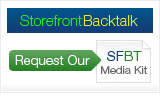

 Cards issued by European banks when used online cross border don't usually support AVS checks. So, when a European card is used with a billing address that's in the US, an ecom merchant wouldn't necessarily know that the shipping zip code doesn't match the billing code.
Cards issued by European banks when used online cross border don't usually support AVS checks. So, when a European card is used with a billing address that's in the US, an ecom merchant wouldn't necessarily know that the shipping zip code doesn't match the billing code. -Marc
-Marc
